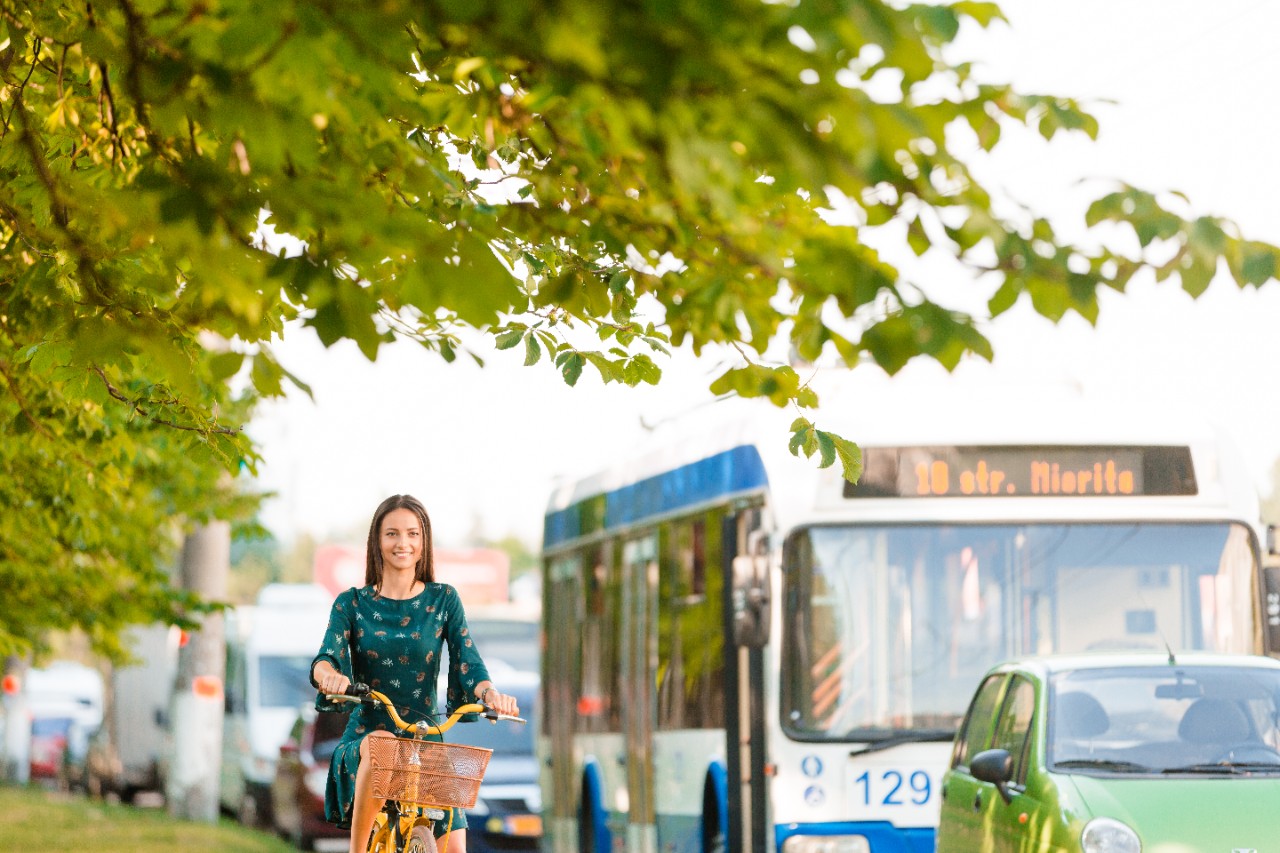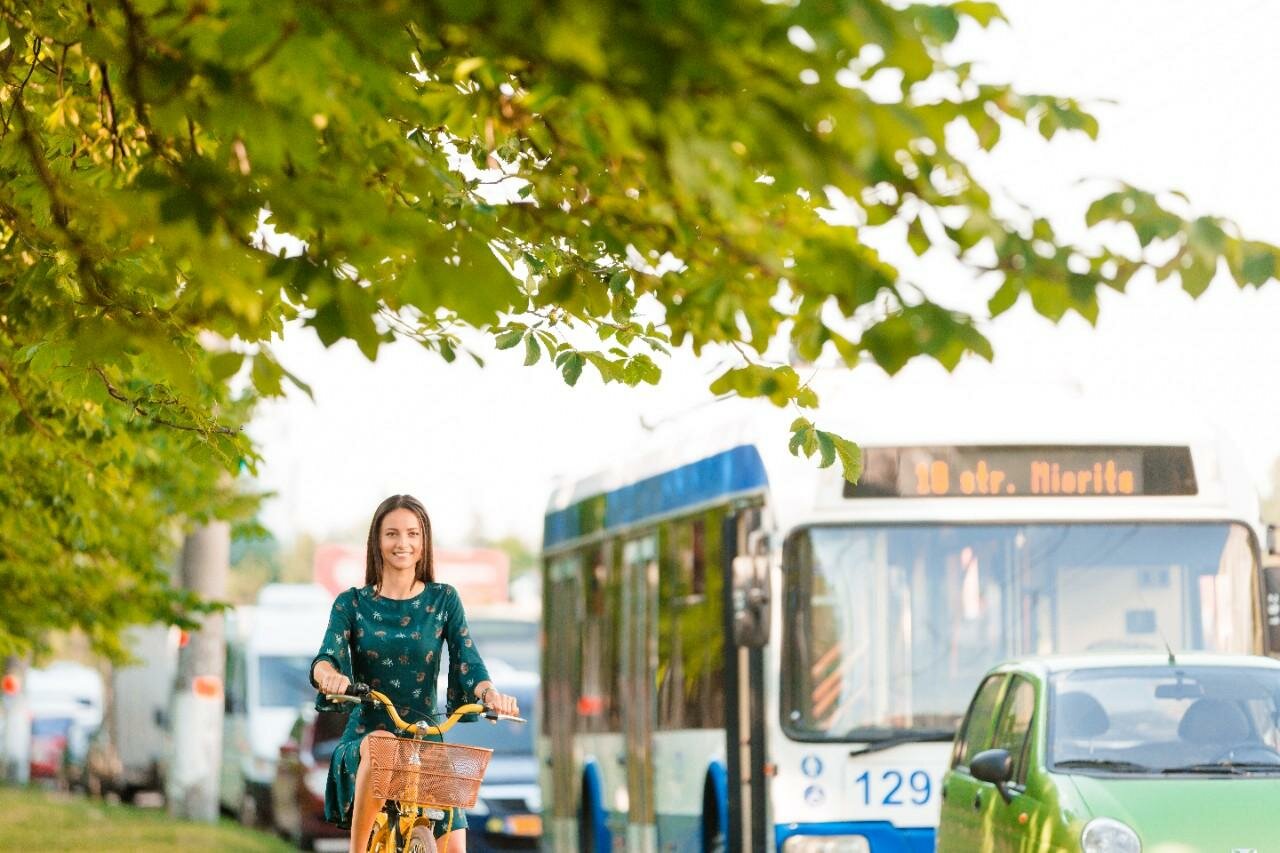Design cities to work better for women, says a new report by Arup, University of Liverpool and UN Development Programme (UNDP)

Photo: UNDP/Moldova
New York, Oct 24 – Urgent action is needed to remove the gender bias built into cities and improve women’s safety, their health, and access to education and employment, according to a new report released today by Arup, the United Nations Development Programme (UNDP), and the University of Liverpool.
Approximately 4.5 billion people, or 55% of the world population, live in urban areas, and 50% of the world’s population is made up of women and girls. The new report, Cities Alive: Designing Cities that Work for Women’, shows that while women make up half the global urban population, cities have not been designed with them in mind. It calls on decision-makers, urban designers, and city planners to work towards cities that are more inclusive, safer, and equitable for women around the world.
The report draws on the voices and experiences of women globally, as well as a thorough review of data and research, to identify issues and recommendations based on the four critical themes: safety and security, justice and equity, health and wellbeing and enrichment and fulfilment.
The findings show that a limited voice in urban design decisions for women can exacerbate and perpetuate inequalities in cities, backed up by existing global statistics and research. Major issues include sexual harassment in public spaces, reflected by the experiences of 97% of women aged 18-24 in the UK, and a lack of access to suitable facilities, with one third of women globally not having access to adequate toilets. The gender bias built into cities is also reflected in honoring the heroes of the past and the present through public monuments, with only 2-3% of statues representing women across the world. And women are not well represented in key decisions that affect the future environment for all, with only around one in seven environmental sector ministries worldwide being led by women.
The new report argues that while barriers to women entering city planning, construction, and leadership positions urgently need to be removed, more needs to be done to reach those influencing how cities are designed now, to show them the importance of gender responsiveness and how to embed it into their work.
Focused on solutions, the recommendations give decision makers and urban practitioners the tools they need to move beyond mere consultation, and actively involve women at every stage of city design and planning – from inception to delivery. Importantly, the report also shows that accelerating the participation of women in urban governance at all levels is a prerequisite for better functioning cities, as cities that work better for women are more resilient and inclusive for all.
“Achieving gender equity is integral to each of the UN Sustainable Development Goals. When cities are largely designed without considering the diverse needs and insights of women of all ages and identities– this can have an adverse impact not only on their lives, but on their families. It restricts their opportunities and negatively impacts the overall sustainable development of societies. Gender-equal cities can generate enormous economic, environmental, political, and social benefits”, stated UNDP Administrator Achim Steiner.
“The gender bias built into the design of cities has had a negative effect on the lives of women around the world. We are calling on urban designers and planners to use this report’s recommendations to meet women’s needs in cities now, while working to bring more women into leadership roles,” stated Léan Doody, the European Director of Cities, Planning and Design at Arup.
The recommendations examine all women’s needs and aspirations, as well as safety, showing how issues like gender-based discrimination, lack of access to quality education and employment opportunities, or housing and essential infrastructure, negatively affect women. It also demonstrates that the gender bias built into cities impacts our ability to tackle climate change, with women facing disproportionate exposure to climate hazards.
The report presents actionable recommendations for key decision makers and urban practitioners on how to design and plan more inclusive, safer, and equitable urban areas for women, which generates benefits for all. Examples of projects and initiatives around the world that have seen success by embracing women’s participation are also provided. These include initiatives in Athens (Greece), Cochabamba (Bolivia), Bogota (Colombia), Nairobi (Kenya) Dakar (Senegal), Da Nang (Vietnam), and San Francisco (USA).
To ensure cities work better for women, the report emphasizes that authorities must work together – including organisations from the private and public sector, along with civil society groups – and design and plan cities that are more inclusive, safer, and equitable for women and girls.
Retrieved from https://www.undp.org/press-releases/design-cities-work-better-women-says-new-report-arup-university-liverpool-and-un-development-programme-undp
Media queries:
Arup- Dan Allen, Media Relations Manager
Email:
Phone: +44 7989 735193
UNDP – Sangita Khadka, Communications Specialist, Bureau for Policy and Programme Support, email:
About Arup
Dedicated to sustainable development, Arup is a collective of 16,000 designers, advisors and experts working across 140 countries. Founded to strive for humanity and excellence in everything that we do, we collaborate with our clients and partners, using imagination, technology and rigour to shape a better world.
About UNDP
As the United Nations lead agency on international development, UNDP works in 170 countries and territories to eradicate poverty and reduce inequality. We help countries to develop policies, leadership skills, partnering abilities, institutional capabilities, and to build resilience to achieve the Sustainable Development Goals. Our work is concentrated in three focus areas; sustainable development, democratic governance and peace building, and climate and disaster resilience.
